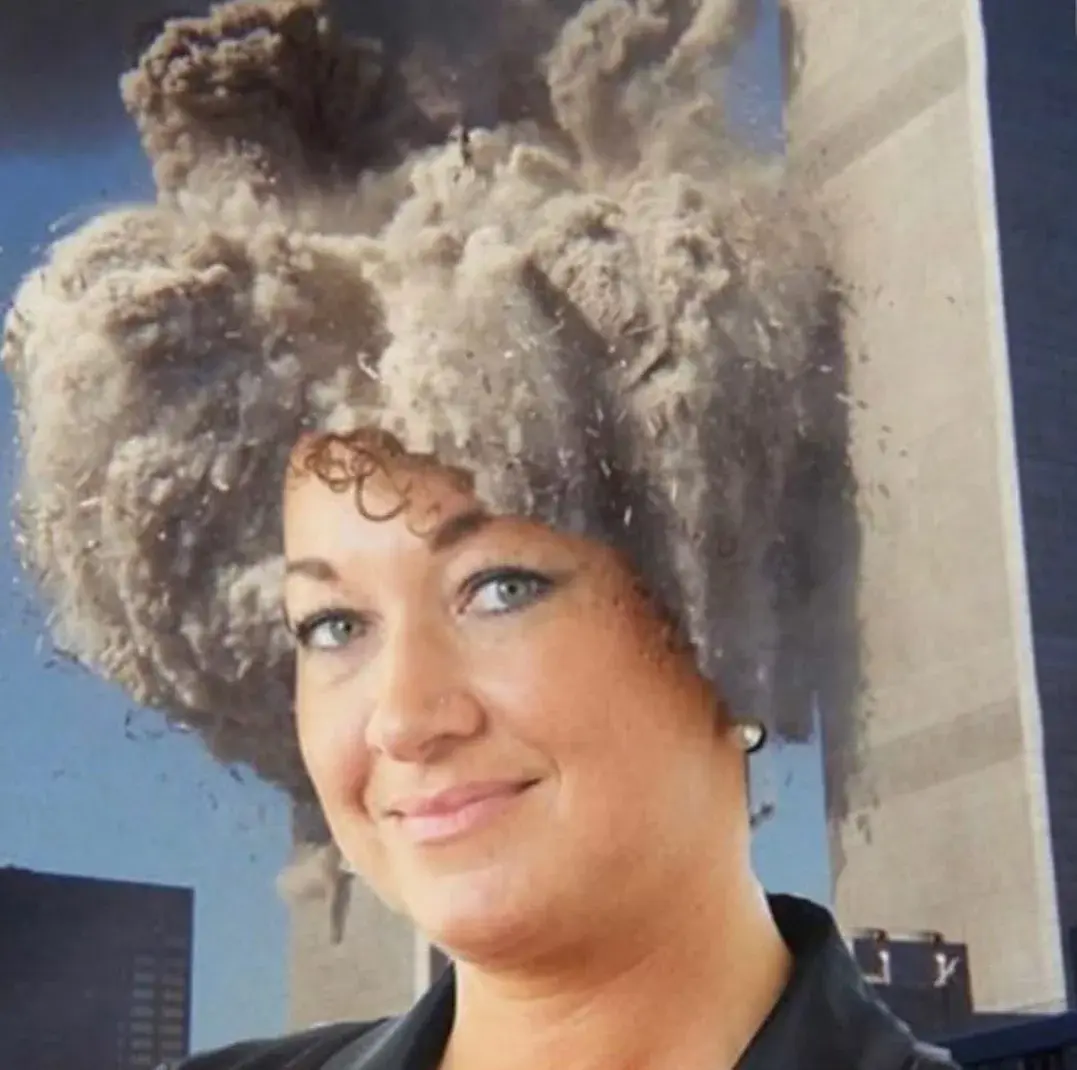Those things are too rich for my blood, but it seems to me like the concept is a great idea, and it would be nice if something like that became cheaper and standardized across brands.
I’ve always been really annoyed by the fact that laptops with socketed CPUs disappeared a decade ago. And these days a ton of laptop manufacturers are very eager to solder the SSD and RAM as well. This occasionally goes as far as laptops with permanent, soldered single channel RAM, and that’s horrifying. These things are destined to be e-waste, ending up in landfills far sooner than typical for equivalent desktop components.
When you upgrade a desktop you have so many more options that will save you money over buying a totally new system. GPUs are essentially plug 'n play. You can often upgrade the CPU just as easily, though every once in a while you’ll need to replace the motherboard. Same goes for RAM. Everything else can almost always be reused: the case, the fans, the CPU cooler, the storage, the monitor, the mouse, and the keyboard. Even the PSU if you’re not getting a significantly more power hungry CPU or GPU. All of that can add up to a ton of money.
Socketed CPUs in laptops are probably never coming back due to how much space they tend to take up. And laptop GPUs will probably never be socketed in the first place for the same reason. But if you could buy a standardized chassis and simply swap out entire motherboards that come in a standardized laptop form factor, upgrading would be so much more cost efficient, as would laptop repair. Also, lets bring back easily removable and swappable laptop batteries while we’re at it.
Unfortunately, this all flies in the face of the inherent capitalist enshittification going on with consumer electronics, and I’m skeptical Framework will ever be anything more than a very expensive niche for enthusiasts who like to tinker with their devices. But I don’t see any technical reasons why something like this wouldn’t be possible and practical.
I’m so out of touch with electronic prices. All my shit are either bought used or given to me as hand me downs. So when I see laptops going for $1000+ and it looks like the end user is just a pencil pusher punching numbers into excel, I get a bit of whiplash
Old ThinkPad gang.
And here I am considering buying a framework because it’s cheaper than a new MacBook… it’s been a while since I bought one new either. Had a desktop for the last ten years and would have kept it running except I got a free used desktop, then got a cheap used MacBook and figured I’d get rid of the big boys. Now the MacBook battery and SSD are failing and it’s very difficult/expensive to fix (plus the RAM is soldered) so I’m considering the Framework as a more upgradable option.
Most of my tech is a few years outdated. But I plan on using them till they die out lol. Maybe by then I have enough money where $1500 for a new phone is the equivalent of of $700 for a new phone
I bought a 13 recently and I love it. There’s really only a slight premium when you look at comparable laptops in terms of size/weight, screen quality, etc… but that premium is exactly why it’s feasible. They can sell laptops for $600 because they know you’re going to buy a brand new one in a few years. With Framework you can replace whatever you need to so long term maintenance becomes less expensive.
Keep in mind 2000s laptops were super thick and very annoying to disassemble.
Something like nvidia mxm for cpu and gpu would be pretty pog.
But yea the premium on Framework stuff right now compared to less repairable laptops is too high. Maybe with increased production they could get better like how Fairphone did.
Old Fairphones were super mid and costly. Now it’s got decent socs and Oled displays. Though you can still see some enshittificiation seeping through with removal of headphone jack to sell their own earbuds. Still, pretty alright.
Buy used components. What’s the point of this sort of build-your-own laptop with independently swappable parts if you don’t buy used parts once certain-afflicted people upgrade to Latest Thing? I feel as though that’s most of the benefit and a great aspect of desktop computers generally.
thicc laptops
 laptops when?
laptops when?I have a thicc Toshiba laptop from around 2010 that has easily removable panels to access the optical drive, hard drive, and RAM. One of the best laptops I owned.
Dropping optical drives killed things, though. Manufacturers immediately went into a race to make everything thinner, and that’s what we’re stuck with now.
The thickness of that Toshiba was fine. It’ll fit in my bag without a problem. Going thinner is just showing off, and repairability suffers.
I agree, they are way too expensive to be even considered as a laptop. Generally for me, laptops should be $600 or less, and 600 is a generous limit. I don’t feel comfortable carrying such an expensive machine around with me. I read a quote from a framework laptop video that framework doesn’t produce the best laptops in the market, but they are the best laptop producers. Maybe that’s true, but it’s going to be a good couple of years (probably a decade) before these machines get to a comfortable consumer price range.
It’s also a large part of my complaint against manufacturers like System76 and Tuxedo whose laptops also suffer from being way too expensive.
the refurb last gen frameworks were almost in your price bracket back when they sold them I think… laptops are kinda a racket tho in general. performance and battery life always seems to nosedive in short order
Curious how expensive a phone do you have?
lotta people rock phones that come cheap or free with their phone plan or used last gen type stuff.
I have a pinephone pro now ($400 new, I got it secondhand for less than half that) but even before that I’ve never paid big money out of pocket for a phone. Its a racket, they are nice and all but it doesnt last. for a long time the moto G line was a goto rec for people who wanted a cheap sturdy phone, and thats not $600+
lotta people rock phones that come cheap or free with their phone plan or used last gen type stuff.
Same here, I’ve been using the same iPhone since 2017. Got it as a gift from my parents, and since then I’ve seen no reason to get a new one because it still works entirely fine for my purposes: calling, texting, email, and light web browsing.
Similar position. I use a phone until the battery doesn’t carry me 3 hours between outlets and then get whatever meets my needs
Pixel 7a which is around the 500 dollar price range on the google store, but if you get it resale from an online retailer like BackMarket it’s closer to $300, it’s running GrapheneOS btw.
If you’re even more interested, my main work computer is a AMD Lenovo Yoga 6 2 in 1 that I swiped at Bestbuy for ~$450 clearance section running Linux Mint 21.3 with the Linux 6.5 kernel.
Used M1 MacBook Air running Asahi would be the move if I were in the market for a laptop at the moment imo
I’ve always thought of that, even more now considering that Fedora Asahi Remix is out. I still worry about switching from x86_64 to ARM, but that will change now that Fedora is backing the project. Still waiting for the price to go down even further.
I’m just waiting for Plasma 6/Ubuntu 24.04 to come out to really consider upgrading.
Framework’s laptop design revolves around this modularity and advertises it as such.
However, other laptop manufacturers have done this somewhat. I have an HP pavilion laptop that I motherboard swapped because the original one had some issues, so I replaced it with an 8th gen i7 motherboard. It was a noticable improvement over the 7th gen i5 motherboard that it came with originally, but it ran really hot. (yes I had the correct cooler, it just ran really hot even with the i5 and I couldn’t get it to undervolt).
That laptop used a lot of ribbon cables and subboards. Even the power button and charger were on seperate boards which was nice. Even the newer pavilions use that layout. I plan on upgrading my current pavilion laptop to an Ryzen 7 5825u board as the current i5 is not really working out for me. It’s cheaper than buying a new laptop.
I do really like what framework is doing and I do plan on purchasing one of the 16 in models once I get a decent job and when my laptop either breaks and I cannot fix it or I need something faster.
Edit: ideally a desktop would be better for my usecase but due to my current living conditions and requirements of a device, a decently powerful laptop that isn’t super heavy is a better choice
However, other laptop manufacturers have done this somewhat. I have an HP pavilion laptop that I motherboard swapped because the original one had some issues, so I replaced it with an 8th gen i7 motherboard. It was a noticable improvement over the 7th gen i5 motherboard that it came with originally, but it ran really hot. (yes I had the correct cooler, it just ran really hot even with the i5 and I couldn’t get it to undervolt).
Yes, definitely sometimes you can get away with swapping motherboards on certain laptops despite the fact that such upgrades aren’t explicitly supported. In fact, I’m soon doing this on a Dell Inspiron. Original specs were an i5-1035G1, 8GB of single channel memory, and 256GB NVMe SSD. Since then I’ve upgraded it to 16GB dual channel memory and a 1TB NVMe SSD.
Currently waiting for a higher end SKU of the same model’s motherboard to arrive, I found it on ebay for a steal. It’s got an i7-1165G7 with Iris Xe G7 integrated graphics. Based on benchmarks I’ve seen the new CPU will get around 25% better single core performance. But the new iGPU is going to be a massive 200%+ uplift. That’s still dogshit compared to even lowish end dedicated GPUs, but good enough to run the indie games I play smoothly.
Going up a whole generation and stack tier is pretty good for an unsupported mod like this. Though I’d like to see such a thing become explicitly supported so that I could, for instance, eventually upgrade a few generations at a time, maybe even to a motherboard with a dedicated GPU installed after waiting a couple generations for the price to come down. I did find motherboards with 12th and 13th gen Intel CPUs on newer Inspirons that still retain a very similar chassis, but upon looking into those ones I found they wouldn’t have been compatible with my laptop’s display despite it being the correct size and resolution. Without the manufacturers explicitly doing the engineering to add in support for non-original hardware, eventually things just cease to be compatible despite the fact they easily could have been.
Those Intel igpus are much better than most people give them credit for. It’s no 3050 mobile but on par than an mx350 with basically up to 32 gb of vram. They shipped laptops with that gpu and that cpu. Asus made one which I find funny. These much more powerful igpus killed off the low end dgpu market. Why get an Nvifia mx350 or a Radeon 630 in a laptop when the igpu is just as powerful and more efficient.
Also WDYM not compatible with the display? It’s edp. I do know that HP will issue bios updates to increase compatibility with parts. (an older HP laptop my friend owns had a bios update that did just that). Unless it’s not edp and is something else entirely.
If it’s a touch screen though, it might be more complicated. If it has a seperate digitizer or if it the touch is baked into the panel.
There’s a pretty good chance it actually supports the panel. At least with HP, they source their panels from a bunch of suppliers. LG, Innolux, BOE etc. I’ve only had LG and Innolux panels in my laptops (mainly Innolux), if you search your model of computer, you can find hardware dumps of people’s PCs that run Linux (people share them for ig testing info idk) and they’ll have screen models in them. If you find that you find one laptop that has the same display as yours, it should support it.
Edit: windows is really aggressive with using OEM drivers with the Intel iris xe igpus, like it will reinstall them while running a game aggressive (ok fwiw I left BeamNG running all night because I forgot, and when I checked my laptop in the morning it had crashed and the driver version changed). The drivers are reasonably up to date though.
They’re also kinda buggy. The driver will occasionally restart but not cleanly. My computer will do it’s best impression of a broken display and I’ll have to restart my laptop. I do have it set to automatically restart when it does crash but it’s annoying and I can’t trust it.
Yeah, unfortunately it was a touchscreen panel. Also runs at 60Hz whereas those newer motherboards I was talking about came in laptops that had 120Hz panels. I don’t know for sure if the refresh rate really matters, but I decided not to chance it given they also weren’t touchscreens like mine was.
And yes, the Iris Xe G7, particularly the one I’m getting with 96 execution units, can often compete with an MX350. But the laptop I have won’t be running the thing to its full potential due to some design choices that Dell made. For some reason they’ve firmware limited the RAM to running at 2666MT/s despite having a CPU rated for 3200MT/s and shipping with a RAM stick containing a 3200MT/s CL22 JEDEC profile. An iGPU especially suffers from slower system RAM given it lacks any dedicated VRAM to pull from.
And also it’ll only be running the CPU at a PL1 of 22 Watts instead of the maximum 28 Watts advertised by Intel. Same goes for the CPU I currently have, the i5-1035G1. I’ve inspected the temperatures while it power throttles to 22 watts after the PL2 timer runs out, and it seems there does exist some thermal headroom to maybe increase the power limit a bit. I’ve looked into BIOS modding to check if it might be plausible to alter the PL1, but I was unable to find a single example anywhere on the internet of someone successfully altering the EC enforced power limits on a laptop containing either an Ice Lake U or a Tiger Lake UP3 CPU. Looks like these things are pretty locked down compared to laptops with Intel’s H series CPUs.
Is it built into the panel or just a seperate digitizer.
Also something you might be able to do is remove Intel dynamic thermal framework if that’s installed on your computer, it will increase it somewhat. Downside it will make it run very hot
Built into the panel.
And I’ve looked into removing IDTF to try and increase the power limits previously, it doesn’t work because the thing that’s causing the power throttling is the embedded controller, and there’s no safe way to modify that thing. I’ve seen some tricks involving altering the IMON slope in the BIOS setup to report a fake, lowered power consumption to the EC to trick it into not throttling, but I’ve never seen anyone get it to work on an Intel G series processor. I’ve seen it work successfully on 8th gen and older U series processors, pretty much all H series processors, and 12th gen and newer U series processors, but infuriatingly not on any CPU carrying the G suffix.
Honestly it’s not worth it. It runs super hot as is at it’s current tdp limit.
Most laptops do have the barest minimum amount of cooling to dissipate their TDP, but in my laptop there’s some thermal headroom. Once the fan gets going at maximum RPM and the laptop power throttles to 22 watts, the temperature stabilizes around 85 to 90 degrees. The maximum temperature it reaches before thermal throttling is 100 degrees, so I think it could most likely handle 25 watts sustained and up to 40 watts in bursts, at least in the winter.
There are Clevo laptops (I think Clevo basically manufactures stuff that is whitelabel and sold by someone else) that have card slots for GPUs, but I think they’re not a standard form factor. That’s most likely what you’d find instead of a socket, less because of space concerns (because the GPU has a bunch of required hardware that has to go somewhere either way and the port is not that big by comparison), and more for reducing latency for the memory. Look up a picture of an A100/H100 SXM, that’s essentially as space efficient as a socketable GPU can get. And those use HBM which is currently way too expensive and hard to manufacture to go in any consumer GPU, so there needs to be space for the VRAM which takes up nearly as much space as all of that power infrastructure.









